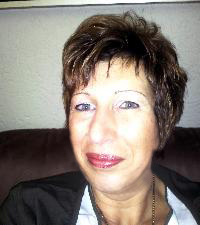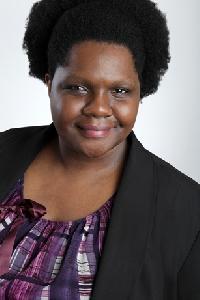| Pages in topic: [1 2] > | Could I define english as my mother tongue? Thread poster: giulipalla
|
|---|
Hello everyone!
So I have a problem here, I seariously don´t know if english is just my second lenguage or mother tongue??? I´m paraguayan and my parents are paraguayans as well, they only speak spanish but they sent me to billingual schools since I´m 2 years old... I can express myself in english in the exact same level as I can in Spanish plus I´ve got no accent when i speak english. So whats english for me? also my doughter is growing in a 3 language environment, english-spa... See more Hello everyone!
So I have a problem here, I seariously don´t know if english is just my second lenguage or mother tongue??? I´m paraguayan and my parents are paraguayans as well, they only speak spanish but they sent me to billingual schools since I´m 2 years old... I can express myself in english in the exact same level as I can in Spanish plus I´ve got no accent when i speak english. So whats english for me? also my doughter is growing in a 3 language environment, english-spanish-german, my husband is german, we live in Germany we speak to her spanish, my husband german and me and my husband we speak english and sometimes to her too and in august she will be going to an english-german kindergarden. So what will be her mother tongue?
[Edited at 2013-04-20 19:23 GMT] ▲ Collapse
| | | | | | Nicole Coesel 
Netherlands
Local time: 13:40
Member (2012)
English to Dutch
+ ...
| Second language | Apr 21, 2013 |
Dear Guilopalla,
In your case it is quite obvious. You were born and raised in Paraguay from Paraguayan parents and you only spoke Spanish at home, Spanish and English at school. So what you heard most is your mother tongue.
That makes English your second language.
I hope that helps.
Just a little tip for you: mind your spelling and use of capital letters.
Good luck,
Nicole.
[Edited at 2013-04-21 10:47 GMT]
[Edited at ... See more Dear Guilopalla,
In your case it is quite obvious. You were born and raised in Paraguay from Paraguayan parents and you only spoke Spanish at home, Spanish and English at school. So what you heard most is your mother tongue.
That makes English your second language.
I hope that helps.
Just a little tip for you: mind your spelling and use of capital letters.
Good luck,
Nicole.
[Edited at 2013-04-21 10:47 GMT]
[Edited at 2013-04-21 10:50 GMT]
[Edited at 2013-04-21 17:41 GMT] ▲ Collapse
| | | | | Inclined to agree | Apr 21, 2013 |
Nicole Coesel wrote:
In your case it is quite obvious. You were born and raised in Paraguay from Paraguayan parents and you only spoke Spanish at home, Spanish and Engish at school. So what you heard most is your mothertongue.
That makes Engsligh your second language.
This mirrors my view. The definition of your first language is tricky, and many people take it up on themselves to tell the world what that is (I literally only spoke English until I started learning University in English, but still jealous of those who grew up in bilingual or multilingual households because playing catch-up is a pain as an adult!!)
Having said that, and on to a potentially offensive question (brace yourself!): How do you know that you don't have an accent when you speak English? I genuinely want to know - I'm not trying to suggest that you have one - have people told you that you sound like you are from England? Just curious.
| | |
|
|
|
Phil Hand 
China
Local time: 19:40
Chinese to English
| You can define it yourself | Apr 21, 2013 |
I disagree with Nicole. You must make the decision what your native/mother language is, and you can have more than one. If your English is at the same level of fluency as your Spanish, then you can certainly say that both languages are native for you. The same will go for your daughter.
In translation, if you say that English is your native language, clients will expect you to be able to translate into English perfectly (as close to perfect as anyone can). If in all good faith, you ... See more I disagree with Nicole. You must make the decision what your native/mother language is, and you can have more than one. If your English is at the same level of fluency as your Spanish, then you can certainly say that both languages are native for you. The same will go for your daughter.
In translation, if you say that English is your native language, clients will expect you to be able to translate into English perfectly (as close to perfect as anyone can). If in all good faith, you can do that, then it's correct to say your English is native. ▲ Collapse
| | | | | Yes, I absolutely agree with Phil | Apr 21, 2013 |
If you speak the languages almost the same, not only you could, but you should.
| | | | Michele Fauble 
United States
Local time: 04:40
Member (2006)
Norwegian to English
+ ...
| Different question | Apr 21, 2013 |
A better question might be, "Are there things in my speech or writing that would cause a native speaker of English to think I am a non-native speaker?"
| | | | | You can have more than one native language | Apr 21, 2013 |
No one is disputing that. But it is also a question of the level at which you speak and write the language. Simply 'native level' is not always enough for professional use as a translator. Many people do not write their native languages (whatever they may be) well enough to work as professional linguists, even though their language is fine for other professions and industries.
_______________
For some of us, our native lanugage is also a 'language of the heart'. The language w... See more No one is disputing that. But it is also a question of the level at which you speak and write the language. Simply 'native level' is not always enough for professional use as a translator. Many people do not write their native languages (whatever they may be) well enough to work as professional linguists, even though their language is fine for other professions and industries.
_______________
For some of us, our native lanugage is also a 'language of the heart'. The language we live in, not just a language used in school or at work or when travelling. There are different definitions of native language, depending on how and where you use it.
Which language do you scream or swear in, when you drop something heavy on your foot?
I have lived more than half my life in Denmark and brought my son up in Danish. It takes Danes some time to discover that I have an accent, unless they know I am a foreigner and are listening for it. I regard Danish for many practical purposes as my second mother tongue, because when in Denmark I dream and react in Danish as much as I dream and react in any language at all. However, I did not start learning Danish until my late twenties.
For professional purposes, my native language is UK English, and Danish is a second language.
______________
There are lots of different types of 'native English' - and even within England where it all started, there are different dialects and accents, so you are sure to have some kind of accent to native speakers from different corners of the globe.
______________
There is no single central authority that lays down what is correct or incorrect in English.
However, there are several accepted standards - the most widespread are UK English and US English, closely followed by the different Commonwealth countries and those where for one reason or another English is a common second language where many other languages are also spoken. There ARE sets of rules, not total anarchy, and clients do expect translators to write correctly and consistently according to one or another of these sets of rules, depending on the text and who you are writing for.
Many people justifiably regard English as a native language, because, like you, they have learnt it from early childhood and received their education in English.
__________________
On the other hand, there have been endless discussions on this site on what a native language is, and although efforts are made to try and draw in other languages - Portuguese, and the different variants in the Francophone world just to mention a couple... the discussion is always fiercest about English.
I fear that some people might accuse you of lying if you claimed English as your native language, if your opening post is the way you normally write English. Sorry, but there is no diplomatic way of putting it.
I hesitate to claim that my UK English is 'better' than yours, but there are a lot of points that would be regarded as spelling mistakes in practically any kind of English.
That short paragraph would not pass as native UK English, and does not look like any of the varieties I regularly see.
_________________
Back to my own case:
I was not educated in Danish, and although I have studied the language at many levels, there are typical expressions that I dislike and do not use. If I get my husband or another 'real' Dane to check through anything I write, they can usually get it to sound more polished and more native, even if it is strictly correct.
_________________
So call English one of your native languages if you like. Your spoken English may be better, but I am afraid that small written sample is not correct enough to be marketed as professional standard native English in many parts of the world. ▲ Collapse
| | |
|
|
|
Jane Proctor (X) 
France
Local time: 13:40
French to English
| Tiny clues give it away | Apr 21, 2013 |
Michele Fauble wrote:
A better question might be, "Are there things in my speech or writing that would cause a native speaker of English to think I am a non-native speaker?"
You are clearly extremely proficient in English, but judging by the way you have written your post, it appears to me that whilst you may be fluent at a spoken level, you are not 100% fluent at a written level.
I would say you are definitely bi-lingual, but that English is not your first language. As for your daughter... time will tell!
| | | | | | Tom in London
United Kingdom
Local time: 12:40
Member (2008)
Italian to English
giulipalla wrote:
Hello everyone!
So I have a problem here, I seariously don´t know if english is just my second lenguage or mother tongue??? I´m paraguayan and my parents are paraguayans as well, they only speak spanish but they sent me to billingual schools since I´m 2 years old... I can express myself in english in the exact same level as I can in Spanish plus I´ve got no accent when i speak english. So whats english for me? also my doughter is growing in a 3 language environment, english-spanish-german, my husband is german, we live in Germany we speak to her spanish, my husband german and me and my husband we speak english and sometimes to her too and in august she will be going to an english-german kindergarden. So what will be her mother tongue?
[Edited at 2013-04-20 19:23 GMT]
From the awkward syntax in the text above, a general lack of fluency, and numerous spelling mistakes, I'd say that English is not even close to being your mother tongue. Examples: "since I´m 2 years old"; "whats english for me?"; "my doughter"; "we speak to her spanish"; "me and my husband we speak english"; "what will be her mother tongue?" etc.
[Edited at 2013-04-21 13:26 GMT]
| | | | Samuel Murray 
Netherlands
Local time: 13:40
Member (2006)
English to Afrikaans
+ ...
| Second... or third language | Apr 21, 2013 |
Tom in London wrote:
From the awkward syntax in the text above, a general lack of fluency, and numerous spelling mistakes, I'd say that English is not even close to being your mother tongue.
I agree. Even if we don't look at spelling mistakes, and we don't look at punctuation and capitalisation tidiness, the fact is that the word order of your sentences is un-English. For English to qualify as your first or your second language, the correct word order must come natural to you.
Samuel
| | |
|
|
|
Ty Kendall 
United Kingdom
Local time: 12:40
Hebrew to English
| Thirded (Fourthed?) | Apr 21, 2013 |
Samuel Murray wrote: Tom in London wrote:
From the awkward syntax in the text above, a general lack of fluency, and numerous spelling mistakes, I'd say that English is not even close to being your mother tongue. I agree. Even if we don't look at spelling mistakes, and we don't look at punctuation and capitalisation tidiness, the fact is that the word order of your sentences is un-English. For English to qualify as your first or your second language, the correct word order must come natural to you. Samuel
Agree with Samuel, Tom, Charlie and Jane. There are times when you have to eschew all political correctness and sensitivity and just call a spade a spade (or a non-native speaker a non-native speaker - whilst remembering that there's nothing wrong with being a non-native speaker - I think non-native speakers should have more pride, they learnt the language the hard way - through study, not from lazily sitting on their butts for 3/4 years listening to their parents jabber away).
The trouble with self-definition/identification is that it tends to drift quite far from reality (humans have a great capacity for self-delusion).
| | | | | Mother tongue... | Apr 21, 2013 |
...obviously the language spoken to you by your mother when you were a baby, which apparently was not English. Go from there.
The mother tongue of my two youngest grandchildren is Swedish -- although they were both born in France and now speak better French than Swedish.
The mother tongue of my son is Swedish although he is British. We always spoke, and speak, Swedish in our family -- although my mother tongue is English.
An interesting mixture.
An intere... See more ...obviously the language spoken to you by your mother when you were a baby, which apparently was not English. Go from there.
The mother tongue of my two youngest grandchildren is Swedish -- although they were both born in France and now speak better French than Swedish.
The mother tongue of my son is Swedish although he is British. We always spoke, and speak, Swedish in our family -- although my mother tongue is English.
An interesting mixture.
An interesting thing regarding my young grandchildren is that when they don't know a particular Swedish word or expression they borrow from the French language, give it a Swedish twist, and carry on. But they don't mix the languages.
There's no exact definition of native language. We are not talking about mathematics. ▲ Collapse
| | | | Jane Proctor (X) 
France
Local time: 13:40
French to English
| interference | Apr 21, 2013 |
Giulipalla, we shouldn't come down too hard on your English, since your question concerns a genuine dilemma for people brought up in a multi-lingual environment.
Take my children for example, who moved with me from London to France eight years ago. My youngest has now spent more time here than in the UK and I suspect her French is better than her English.. French constantly interferes with her spoken English, faux amis abound and she is forever muddling up her syntax... funnily eno... See more Giulipalla, we shouldn't come down too hard on your English, since your question concerns a genuine dilemma for people brought up in a multi-lingual environment.
Take my children for example, who moved with me from London to France eight years ago. My youngest has now spent more time here than in the UK and I suspect her French is better than her English.. French constantly interferes with her spoken English, faux amis abound and she is forever muddling up her syntax... funnily enough sentences starting with "since..." being a classic one!
And yet, technically, English is and will always be her first language/mother tongue or whatever you want to call it.
[Edited at 2013-04-21 19:09 GMT]
[Edited at 2013-04-21 19:24 GMT] ▲ Collapse
| | | | | Pages in topic: [1 2] > | There is no moderator assigned specifically to this forum. To report site rules violations or get help, please contact site staff » Could I define english as my mother tongue? | Protemos translation business management system | Create your account in minutes, and start working! 3-month trial for agencies, and free for freelancers!
The system lets you keep client/vendor database, with contacts and rates, manage projects and assign jobs to vendors, issue invoices, track payments, store and manage project files, generate business reports on turnover profit per client/manager etc.
More info » |
| | Wordfast Pro | Translation Memory Software for Any Platform
Exclusive discount for ProZ.com users!
Save over 13% when purchasing Wordfast Pro through ProZ.com. Wordfast is the world's #1 provider of platform-independent Translation Memory software. Consistently ranked the most user-friendly and highest value
Buy now! » |
|
| | | | X Sign in to your ProZ.com account... | | | | | |














